Learn about brain health and nootropics to boost brain function
Heal your thyroid with dandelion… and 9 other powerful tonics to try

( Natural News ) The thyroid is an important gland that is responsible for a lot of functions in the body. If it is over- or under-functioning, you might experience symptoms, such as brain fog, a slower metabolism, fatigue, and even depression. Here are some tonics and teas that you can brew up to improve thyroid health : Dandelion – Dandelions have anti-inflammatory and antioxidant properties which help calm the autoimmune flares and balance out the immune system. To make dandelion tea, you need two teaspoons of dried dandelion root and leaves. Then, steep it with fresh lemon zest in a tea infuser for 15 to 20 minutes. Add half a teaspoon of raw honey, stir, and drink. Siberian ginseng – As an adaptogenic herb, Siberian ginseng can help the body handle stress better, like the stress caused by a thyroid problem. Additionally, it can help reduce inflammation commonly found in thyroid problems. The dried root of this herb can be brewed and paired with orange peel or zest. Siberian ginseng requires a longer cooking time, about two to three hours, to extract the herbal benefits. Chaga – Chaga provides liver and lymph cleansing benefits. It also removes toxins and nourishes the detox system, which is beneficial for a thyroid-sluggish body. It also has mind-clearing benefits which can clear away thyroid brain fog. Chaga can be mixed in a smoothie or be made into a matcha-like tea drink. Ashwagandha – This herb can help the body cope better with stress, anxiety, and other chronic health conditions. Moreover, it can help improve the production of thyroid hormone. You can take ashwagandha by mixing it with warm coconut or almond milk. Turmeric – Turmeric is a nourishing food for thyroid health because of its active ingredient, curcumin. It provides anti-inflammatory properties […]
How Brain Stimulation Can Boost Memory If Paired With Learning
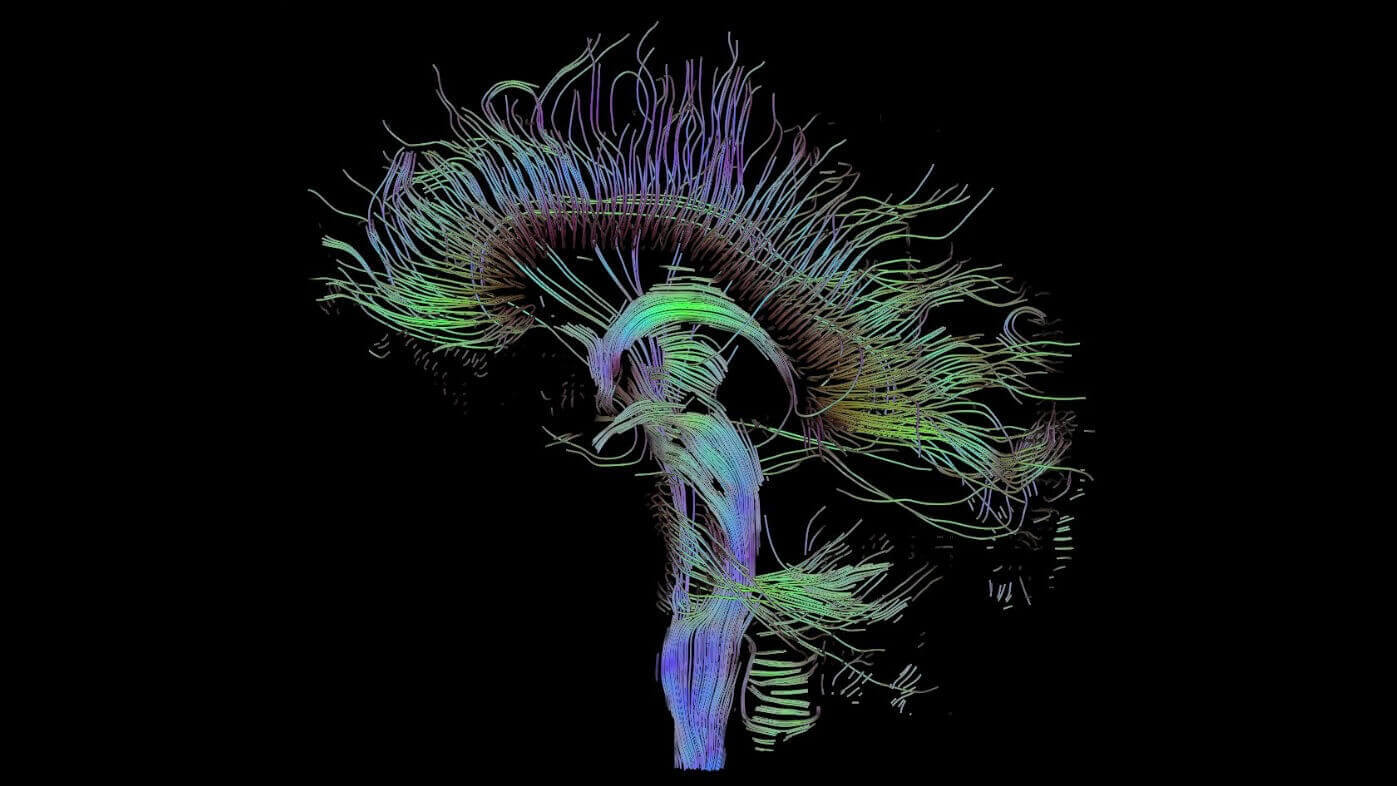
In 47 CE, Scribonius Largus, court physician to the Roman emperor Claudius, described in his Compositiones a method for treating chronic migraines: place torpedo fish on the scalps of patients to ease their pain with electric shocks. Largus was on the right path; our brains are comprised of electrical signals that influence how brain cells communicate with each other and in turn affect cognitive processes such as memory, emotion and attention. The science of brain stimulation —altering electrical signals in the brain—has, needless to say, changed in the past 2,000 years. Today we have a handful of transcranial direct current stimulation (tDCS) devices that deliver constant, low current to specific regions of the brain through electrodes on the scalp, for users ranging from online video-gamers to professional athletes and people with depression. Yet cognitive neuroscientists are still working to understand just how much we can influence brain signals and improve cognition with these techniques. Brain stimulation by tDCS is non-invasive and inexpensive. Some scientists think it increases the likelihood that neurons will fire, altering neural connections and potentially improving the cognitive skills associated with specific brain regions. Neural networks associated with attention control can be targeted to improve focus in people with attention deficit hyperactivity disorder (ADHD). Or people who have a hard time remembering shopping lists and phone numbers might like to target brain areas associated with short-term (also known as working) memory in order to enhance this cognitive process. However, the effects of tDCS are inconclusive across a wide body of peer-reviewed studies, particularly after a single session. In fact, some experts question whether enough electrical stimulation from the technique is passing through the scalp into the brain to alter connections between brain cells at all. Notably, the neuroscientist György Buzsáki at New York University presented research […]
The Nonalcoholic Beverage Market is Projected to Grow
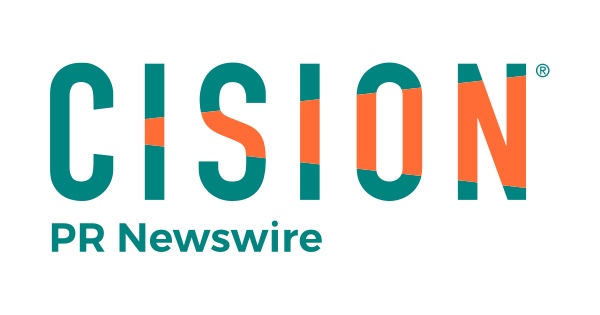
According to data published by Allied Market Research, the non-alcoholic drinks market size is estimated to grow at a CAGR of 4.4% to reach $2,090 billion by 2022. The research attributes the projections to ongoing advancements in the nonalcoholic drinks market with innovative efforts have further enhanced their demand. The report also indicates that recent innovations, which embed functional benefits and natural or organic ingredients in manufacturing of drinks is anticipated to enable the market to reach to a wider segment of audiences. Market segments such as energy drinks, sport drinks, and hot drinks are expected to witness good growth in the near future. Koios Beverage Corp. (CSE: KBEV), The Coca-Cola Company (NYSE: KO), SodaStream International Ltd. (NASDAQ: SODA), PepsiCo, Inc. (NASDAQ: PEP), Cott Corporation (NYSE: COT ) Health and wellness have significantly posed positive impact on the food and beverages industry in recent years. Increase in awareness of various health problems associated with alcohol has shifted the consumer preference from alcoholic drinks towards healthy, often organic nonalcoholic drinks. According to Future Market Insights, “Functional beverages are non-alcoholic drinks that keeps one’s body hydrated and provide overall nutritional well-being. These are fortified drinks that prevent or help address health issues across all age groups… Energy drinks is the largest segment in functional beverages followed by sports drinks and nutraceutical drinks… North America is the largest market for functional beverages as it contains innovative varieties of drinks that are customized for all age groups and strata.” Koios Beverage Corp. (CSE: KBEV) listed on the Canadian Securities Exchange, earlier in the week the company announced that, “Koios Beverage Corp. (CSE: KBEV)…is pleased to announce that further to its news release on April 13, 2018, the Company’s common shares will resume trading on the Canadian Securities Exchange (the “CSE”) under the symbol […]
3 Foods That Will Instantly Improve Your Mood (Not In The Stress-Eating Kind Of Way)

Anchovy toast Experts call the stomach your "second brain" for a reason: There’s a little world of neurons hanging out in there, ready to fire off feel-good messages straight to your head. Get them going with eat-the-rainbow meals designed to energize, calm, or boost your mood. MARCUS NILSSON This salad will prep you for anything. It’s teeming with wild shrimp (low in cals, big in protein and iron to get you pumped), crunchy apples (for an all-natural sugar rush), and spicy peppers (loaded with capsaicins, compounds that stimulate the release of endorphins—the same chemicals that create a runner’s high!). MARCUS NILSSON There are mind-blowing numbers of avo toast on insta. But if you’re after mind-sharpening, crown that crusty bread with anchovies. Yep, anchovies. These savory swimmers (boasting umami-rich flavor) are packed with omega-3 fatty acids, which can fuel your mind and enhance a positive mood. Top it off with multihued carrots—the more colors, the greater the range of vitamins—to get your fill of memory-improving flavonoids. MARCUS NILSSON Brownies. The word alone conjures good moods. Chocolate itself decreases cortisol levels, but this batch eclipses the classic. One: it’s baked with sweet potatoes, which contain muscle-relaxing potassium and fiber, so you feel full faster. Two: Black beans are high in magnesium, which regulates the nervous system to help tame anxiety. This article originally appeared in the May 2018 issue of Women’s Health. For more great ideas, pick up a copy on newsstands now!
5 Simple Ways To Boost Our Intelligence
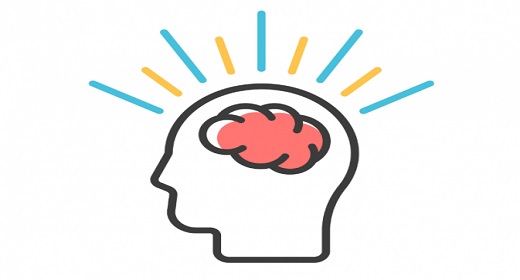
by Sabrina Stierwalt, PhD: Popular media is full of suggestions on how to improve our brain health and cognition. But can we really boost our intelligence? The ‘selfish brain’ theory of evolution describes our brains as taking the energy it needs, typically in the form of glucose, before doling out what remains to the rest of the body. In other words, the brain selfishly prioritizes its own needs which are comparably high. A recent study from the University of Cambridge put this theory to the test by challenging elite rowers to perform a memory task and a physical rowing task, first separately and then at the same time. Performance in both the memory-related and the physical tasks decreased when the students attempted to accomplish them simultaneously, but their rowing suffered far more than their ability to recall words for the memory task. On average, the participants showed a 30% greater drop in their physical strength than in their cognitive abilities , suggesting the brain does in fact take what it needs first when resources become scarce. Although the selfish brain theory has been proposed as a possible origin for physical issues like obesity, it may also push back against the idea that we are stuck with an innate level of intelligence. If we can count on our brains to demand our body’s limited resources, can we also count on them to continue to improve even once we’re done growing in adulthood? A common brain myth is that we only use 10% of our brain . I have certainly heard this statistic and a study from only a few years ago showed that as many as 65% of Americans believe it to be true. However, neurologists at the Mayo Clinic note that throughout the course of the day, we use […]
10 Most Powerful Herbs and Spices To Add To Your Diet
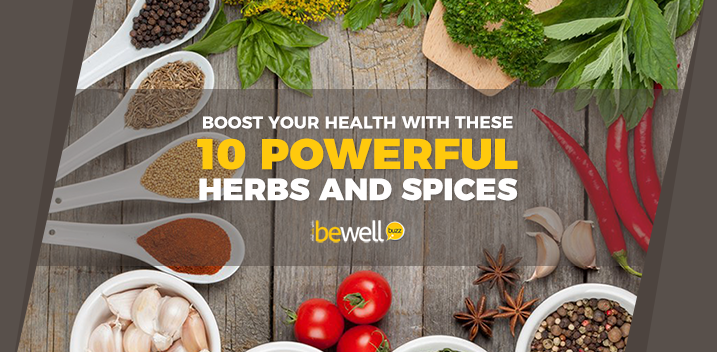
Herbs and spices have been used for thousands of years for their medicinal properties and healing powers. Chinese medicine relies heavily on natural ingredients for health and vitality—with good reason. Herbs and spices are commonly used to add flavor to food, but many people don’t realize that adding these tiny touches of flavor also boosts the nutritional value of your favorite dishes. Certain herbs and spices have been researched and proven effective in their inflammation-reducing, cancer-preventing, immune-boosting, and anti-aging properties. These ten little powerhouses of healthy goodness may already be sitting in your pantry or your fridge, so start spicing up your food for better health! 1. Turmeric Turmeric contains a powerful compound called curcumin, which has incredible anti-inflammatory and chemopreventive properties, according to studies. It has shown positive results in improving symptoms of several types of chronic diseases, including cancer, diabetes, obesity, cardiovascular, pulmonary, neurological, and autoimmune diseases. (1) Curcumin is so effective that it is even sold as capsules for supplementation. Thousands of studies were conducted to determine the health benefits of curcumin with the same results— curcumin has powerful anti-inflammatory effects. It reduces oxidative stress and fights cancer. (2) 2. Oregano Oregano is a popular herb used in Mediterranean and Italian cuisine. In the US, it is primarily used as pizza seasoning in its dried form. Oregano is full of important nutrients , including vitamins A, C, E, and K, as well as fiber, folate, iron, magnesium, calcium, and potassium. Even though it’s packed with vitamins, oregano’s potency can be attributed to its anti-inflammatory, antifungal, antibacterial, and antiviral properties. Oregano possesses two antimicrobial phytochemicals called carvacrol and thymol . Oregano essential oil has been researched extensively for its antimicrobial effects and is proven effective against many kinds of bacteria, including E. coli , S. aureus , […]
From the Health Ranger Store: The 10 most powerful plant-based foods on the planet
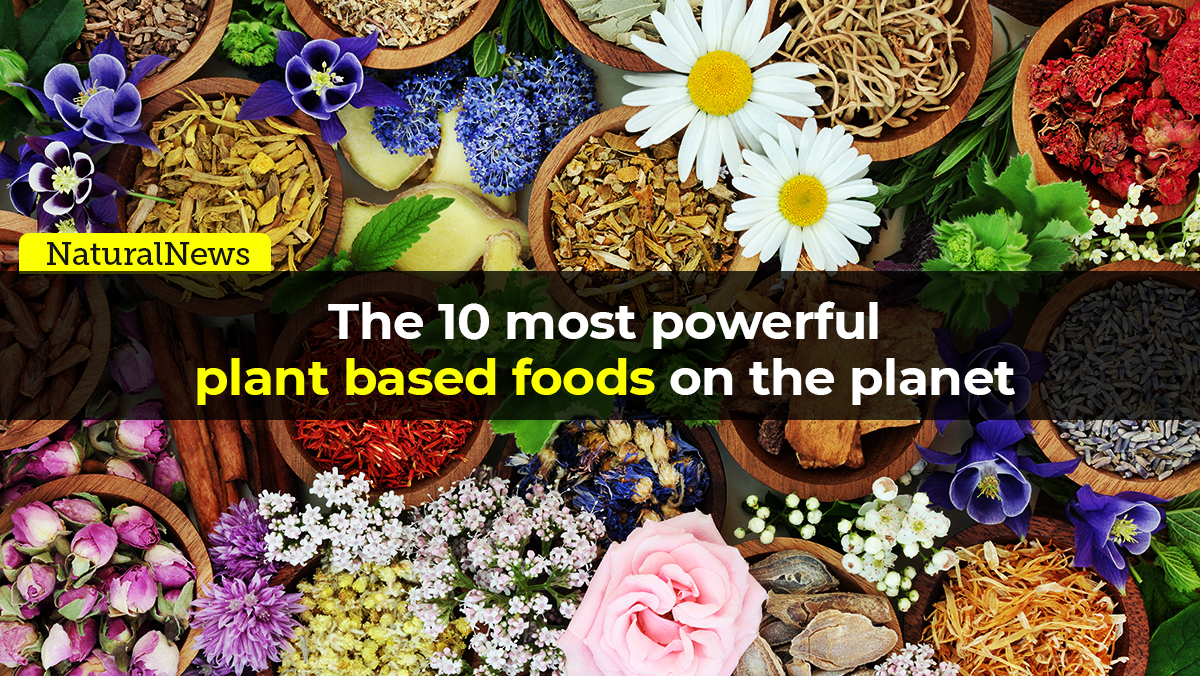
( Natural News ) The majority of people are living in a food desert, with very little unpolluted and nourishing food on the horizon. Sure, there is the odd oasis where you can pick up some fresh, organic, and nutrient dense food, but for many people these spots are far and few in between. Fortunately, organic food delivery services, food growing systems , and online shopping has allowed people to access food they normally would never get (or even see), which has dramatically changed the landscape for those wanting to live a true healthy lifestyle anchored in nutrition. Now, if you want to accelerate your well-being by flooding your body with some of the most powerful foods on the planet, this is an excellent list to start with that will help shape your health goals in a fraction of the time it takes most people. As someone who used many of these foods to create my one-in-a-million health story , I’m well aware of how well they work when sourced appropriately. Now, let’s dig in and see how ten of the most powerful foods on the planet can change your life, for good! Chlorella A single-celled green algae, chlorella has quickly become one of the most powerful foods that have been cultivated on the planet. It’s rich in highly digestible protein (58 percent of weight), chlorophyll, iron, zinc, vitamin A, C, E, and K, beta carotene, lutein, polysaccharides, and essential fatty acids including gamma linolenic acid (GLA). It also contains the entire vitamin B-complex, is one of the few whole food sources of vitamin D, and contains magnesium, phosphorus, calcium, and potassium. Sponsored solution from CWC Labs: This heavy metals test kit allows you to test almost anything for 20+ heavy metals and nutritive minerals, including lead, mercury, arsenic, […]
Brain-gut connection determines how we respond to stressful situations… junk food makes for a junk mind

( Natural News ) “You are what you eat” might be an overused phrase, but there’s quite a bit of truth to it, particularly when it comes to your brain. According to a paper published in the journal Physiology , the signals from your gut to your brain have a strong influence on your behaviors and emotions, especially during threatening events . Your gut and brain constantly communicate with one another through your vagus nerve. This nerve makes its way throughout your chest and abdomen, controlling and monitoring not only your digestion but also your hormone levels, immune function, heart rate and blood pressure. This nerve forms part of a protective system that can help you make decisions by compelling you to slow down and evaluate a particular situation before proceeding or even avoid it entirely. It essentially connects your brain with your gastrointestinal tract, which covers a big surface area and is laden with sensors. To put it in perspective, the GI tract is more than 100 times bigger than your skin’s total surface, and it sends more signals up to your brain than any other of your organs. As you can imagine, this makes your gut tremendously powerful. A poor diet can throw off the protective signals that come from the vagus nerve that encourage you to be cautious. This can change your behavior and your mood. As a matter of fact, the connection is so strong that recent studies have found that traumatic brain injuries can damage an individual’s gut in addition to their brain. Moreover, it appears to be a two-way street, with gut irregularities impacting brain inflammation following traumatic brain injuries . Support our mission and protect your health: Organic Seeds of Life combines Red Raspberry Seed Power, Black Cumin Seed Power and Red […]
14 Natural Ways to Improve Your Memory

Everyone has moments of forgetfulness from time to time, especially when life gets busy. While this can be a completely normal occurrence, having a poor memory can be frustrating. Genetics plays a role in memory loss, especially in serious neurological conditions like Alzheimer’s disease. However, research has shown that diet and lifestyle have a major impact on memory too. Here are 14 evidence-based ways to improve your memory naturally. Eating too much added sugar has been linked to many health issues and chronic diseases, including cognitive decline. Research has shown that a sugar-laden diet can lead to poor memory and reduced brain volume, particularly in the area of the brain that stores short-term memory ( 1 , 2 ). For example, one study of more than 4,000 people found that those with a higher intake of sugary beverages like soda had lower total brain volumes and poorer memories on average compared to people who consumed less sugar ( 2 ). Cutting back on sugar not only helps your memory but also improves your overall health. Research has shown that people who regularly consume lots of added sugar may have poorer memories and lower brain volumes than those who consume less sugar. Fish oil is rich in the omega-3 fatty acids eicosapentaenoic acid (EPA) and docosahexaenoic acid (DHA). These fats are important for overall health and have been shown to lower the risk of heart disease, reduce inflammation, relieve stress and anxiety, and slow mental decline ( 3 , 4 ). Many studies have shown that consuming fish and fish oil supplements may improve memory, especially in older people. One study of 36 older adults with mild cognitive impairment found that short-term and working memory scores improved significantly after they took concentrated fish oil supplements for 12 months ( 5 […]
Best Brain Supplements for Increased Mental Performance

Wouldn’t it be great to be able to concentrate longer and stay focused at school or work? Maybe even increase your IQ, memory or even creativity? Now you can. The answer is a newer line of supplements that are made to do all those things we listed above and more. These brain supplements are called nootropics and they deliver. Nootropics will help you process information faster, have better decision making, solve problems and not fall behind younger minds. If you need help with memory, focus or even your motivation then these brain supplements might be just what you are looking for. There is a wide variety of people who use brain supplements. From athletes to older people to accountants to students and even fighter pilots. If it is something that requires high mental demand and focus, then there are probably people using brain supplements. What do brain supplements do? When it comes to a good brain supplement or nootropic there are several things they do for you. They are: Increase concentration – If you are one of those people who has trouble staying focused on a task and keep jumping from one thing to another without really getting much accomplished then nootropics can be a big help. Rhodiola Rosea is an herb to look for in a nootropic that helps with concentration. Many nootropics will increase your attention span as well. Enhanced problem solving – Nootropics are great at enhancing problem solving and learning. A good nootropic will increase your Alpha Brain Waves which puts you in a state of wakeful relaxation, an ideal state for studying, learning or achieving superior work productivity. Similar to an athlete being in the zone. Improve memory – Brain supplements contain ingredients that improve your memory. Vinpocetine in particular has been shown to […]
Click here to view full article
Order Rhodiola Rosea – all natural supplement
Treat pain by being hungry? New study suggests that hunger shuts off our perception of pain

( Natural News ) Believe it or not but pain can actually be a friend. It tells us something is wrong and that we should avoid it, like getting too close to the bonfire and hurting ourselves. It tells us to be careful when slicing vegetables, because we can hurt our fingers if we don’t watch out. Neuroscientists from the University of Pennsylvania concluded in a new research that animals suppress chronic pain when they are hungry , in an attempt to look for food and survive. The study zeroed in on 300 brain cells that prioritize the need for food to quell hunger, than the need to get over chronic pain. Amber L. Alhadeff, one of the researchers admitted that his team did not expect that hunger could influence the feeling of pain. But he realized it made sense. Animals must get nutrients from food first before they can even think of overcoming pain from injury. Curious about how hunger may interact with the sensation of pain, the researchers observed how mice that hadn’t eaten for 24 hours still responded to acute pain. But unlike their well-fed counterparts, hungry mice ignored pain caused by inflammation. Long-term pain from inflammation is thought to involve neural circuits in the brain. The researchers also discovered that hungry mice did not steer away from the place that brought them inflammatory pain . This made researchers wonder what part of the brain was behind the hunger-pain connection. They experimented on gouti-related protein (AgRP) neurons, which are believed to trigger hunger. They found out that mice responded less to chronic pain while retaining their reactions to severe pain. The researchers dug deeper and discovered that stimulating only a few hundred AgRP neurons markedly suppressed inflammatory pain. J. Nicholas Betley, assistant biology professor at the […]
Click here to view full article
- Exercise — Dr. Charles Kim, M.D., assistant professor of rehabilitation medicine and anesthesiology and a medical acupuncturist at the the New York University Langone Medical Center says that working out produces natural painkillers like endorphins. They raise our threshold of pain and work with brain receptors to change how we perceive pain.
- Fish oil — A study showed that after 75 days, more than half of the patients with neck or back pain who took 1,200 milligrams of fish oil a day with eicosapentaenoic and decosahexanoic acid stopped taking painkillers. Order all natural fish oil here.
- Turmeric — Researchers who combined turmeric with Devil’s claw and bromelain on patients found that that the mixture relieved pain from osteoarthritis. The patients took two 650-milligram capsules twice or thrice a day. All natural turmeric available online here.
- Resveratrol in red wine, grapes and berries — Researchers reported that the substance regulates pain on the cellular level.
Neuroscientist shares easy, natural ways to prevent dementia
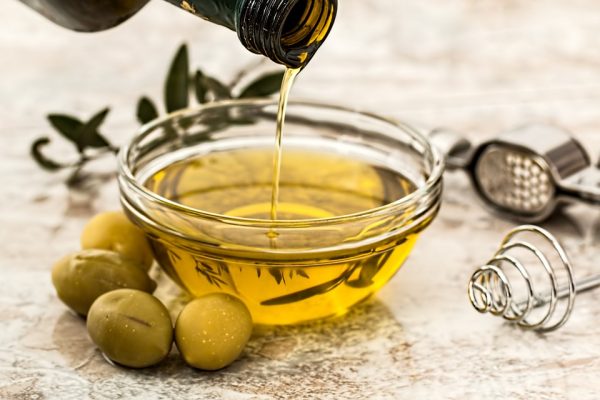
( Natural News ) So you’ve become a regular at the gym, turned vegan, and done almost everything in your power to stay physically healthy. What about staying mentally fit as well? Mental health is just as important as physical health. Mental fitness protects us from depression, dementia, Alzheimer’s , and other diseases. Neuroscientist Dr. Lisa Mosconi, director of the Alzheimer’s Prevention Clinic at Weill Cornell Medical College , New York claims we can prevent Alzheimer’s and dementia through healthier food and lifestyle choices. In her new book Brain Food: How to Eat Smart and Sharpen your Mind , Mosconi says that while genetics plays a key role in causing dementia, lifestyle factors, like diet, are just as crucial. Maintain your sugar levels — Our brain depends mainly on glucose (sugar) and needs 62 grams of glucose daily. Before you grab that extra-large pizza though, Mosconi says our brains’ ‘sugar gates’ open when it needs sugar, but shuts down once it’s had enough. Excess glucose can’t enter the “sugar gate.” Instead, it leads to high blood sugar levels and weight gain. Know how your nutrients interact — Nutrients in your body should interact withe each other. Make sure you get a balance of polyunsaturated fatty acids (PUFAs) and vitamin B. Have plant-based meals — Our vegetarian ancestors knew it all along. Plant-based foods are the best. In fact, 98 percent of those who live long, healthy and dementia-free lives are vegans. Choose organic food well — You can also save on costs by choosing fruits that are in season. You can also opt for wild fish over the farmed variety, since the former tends to have less pollutants and pesticides. Always eat breakfast — Breakfast is indeed the most important meal of the day, because the brain needs an […]
Reduce your risk of developing Alzheimer’s by walking FAST and OFTEN

( Natural News ) In 2015, at least 47 million people worldwide had dementia, a memory problem that often greatly affects an individual’s ability to accomplish daily tasks. While the most common cause of dementia is Alzheimer’s disease, other forms exist as well. Unlike other diseases that can be treated, there is no cure for dementia. However, learning about its risk factors is one way to prevent it. According to a study, older adults who have slower walking speeds could have a higher risk of developing dementia than those with faster walking speeds. A team of researchers from the U.K. analyzed the relationship among changes in walking speed, changes in the ability to think and make decisions, and dementia. The results of the study were published in the Journal of the American Geriatrics Society . For the study, the researchers reviewed data from the “English Longitudinal Study of Aging” which contained information from adults aged 60 and older who lived in England. The researchers relied on information gathered from 2002 to 2015 and they assessed participants’ walking speed on two occasions: From 2002 to 2003; and in 2004 to 2005. The participants were observed once again to determine whether or not they developed dementia following the tests from 2006 to 2015. The researchers then compared the patients who had developed dementia with those who had not. (Related: Go for a brisk walk every day to protect your brain .) The researchers found out that out of the almost 4,000 older adults they observed, the ones with a slower walking speed had a higher chance of developing dementia. Additionally, individuals who experienced a faster decrease in walking speed in a two-year period were also at greater risk for dementia. Support our mission and protect your health: Organic Seeds of Life […]
Can This Gentle Exercise Help Improve Memory?

With the world’s population aging, more and more people are losing their memory. This is why there is a strong focus on finding preventative measures for memory loss, preferably natural remedies. Researchers examined the effects of tai chi on different levels of mild cognitive impairment — a precursor to future more serious memory loss — to determine its effectiveness for maintaining memory. There are currently an estimated 7.7 million dementia cases reported each year with 47.5 million patients. Mild cognitive impairment (MCI) is a noticeable decrease in memory, thinking, and skills, but as the name insinuates, it’s still quite mild compared to dementia or Alzheimer’s disease . On the other hand, individuals with MCI tend to have a higher risk for dementia or Alzheimer’s disease. MCI can very much interfere with a person’s daily life, such as performing everyday tasks like driving, shopping, or caring for themselves, as the individual may become forgetful. There is some preliminary research to suggest that tai chi can help support the brain, as it promotes blood circulation, which slows down the death of brain cells and aging of the brain. The Chinese researchers of the recent study recruited 160 older adults to explore the effects of tai chi on the brain and MCI. The participants were divided into two groups: One group received one hour of tai chi lessons for 16 weeks and the other group did not. The researchers uncovered that the older adults that received tai chi scored better on questionnaires measuring cognitive ability. The results remained even after accounting for age, education, marital status, and living conditions. Although the study did pose some limitations, including the study not being blind, it still reveals that this type of exercise has the potential to offer benefits to brain health. Generally, any type […]
What caffeine does to your body and brain

Caffeine has a number of health effects on the body and brain. Depending on how you consume it, caffeine could improve memory, boost athletic performance, and be good for the heart. But too much of it may also cause irritation or anxiety. Many of us can’t start our day without a jolt of caffeine. Various caffeinated drinks affect your health in different ways. Coffee itself seems to be associated with significant health benefits , including reduced cancer risk, improved liver function, and a lower risk for cognitive decline. But other caffeinated beverages like energy drinks have surprisingly high sugar levels , which may have negative health effects but. But caffeine itself can do a lot, including boost athletic performance, improve memory, and — according to one recent review of studies — it may improve heart function. The popular stimulant has both positive and negative effects. It makes most of us feel more alert, awake, and focused, but too much can also backfire. It also affects a host of processes in our bodies, including our digestion, metabolism, and vision. Here’s what’s really going on after you drink a cup of joe. Caffeine is the most commonly used psychoactive drug in the world. One of the things rarely mentioned about caffeine is that it is, in fact, a drug. In fact, it’s the most commonly used psychoactive drug in the world, which is probably why we don’t think about it as a drug. Caffeine has psychoactive effects, and changes the way we feel and interact with the world around us. Yet think of how many of us can’t — or won’t — go through a day without it. Harvard neuroscientist Charles Czeisler has hypothesized that caffeine, combined with electricity, allowed humans to escape natural patterns of sleep and wakefulness, breaking them […]
3 Smoothies to Help Improve Brain Power
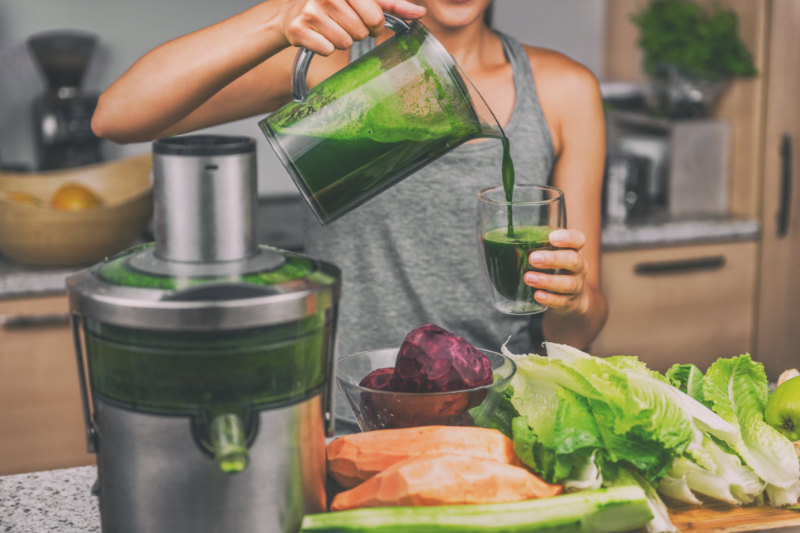
Shutterstock.com We’ve all heard of the infamous phrase you are what you eat. And, in all honesty, that phrase has a lot of truth to it, because depending on what you eat, your diet can have a huge impact on your overall health. Your brain needs proper nutrients to function well, so when you consciously eat with your brain health in mind, you will be able to focus and think more clearly throughout the day. The following smoothies are packed with nutrients that will help regulate your blood sugar, stabilize free-radical damage, and, most importantly, boost brain health. Coconut Almond, Blueberry, and Beet Smoothie Shutterstock.com Beets are a high source of fiber, folate, phytonutrients, beta-carotene, and natural nitrates that all help support blood flow to the brain. Coconut is naturally low in sugar and is one of the richest sources of medium-chain triglycerides. Medium-chain triglycerides are converted into energy for your brain and can even help improve memory. What you will need: 2 tsp of unsweetened coconut 1/2 cup unsweetened carrot juice 1/2 cup ice cubes 1/2 cup frozen or fresh blueberries 1/2 cup unsweetened applesauce 1/2 cup peeled and grated raw beet 1/2 cup unsalted raw whole almonds dash of ground ginger Method: Combine all your ingredients in your blender, and blend to your desired consistency. Grab a cup and enjoy! Avocado and Mango Smoothie Shutterstock.com This tropical smoothie has all the necessary nutrients needed to help support brain function. Avocados are rich in vitamin E, which has been proven to help lower the risk of Alzheimer’s disease. The spinach present in this smoothie helps strengthen your brain while the omega-3’s present in spinach help replenish your iron supply. What you will need: 1 cup of fresh spinach 1/2 fresh mango 1 cup chilled low-fat vanilla soymilk 1/4 […]
BPA, found in plastic water bottles, linked to abnormal brain development in fetuses … Mothers BEWARE

( Natural News ) For some time now, mothers have been made aware of the dangers of Bisphenol A (BPA) , a chemical used in many types of containers, including baby bottles. BPA is used to harden plastics, prevent contamination of foods, and stop cans from rusting. In recent years, several studies have confirmed that BPA affects endocrine function (hormonal balance) in animals and humans, and new moms have been warned to avoid baby bottles that contain this chemical and to take other steps like not boiling polycarbonate bottles or heating them in the microwave. BPA has been linked to both male and female infertility, early puberty, hormonal breast and prostrate cancers, and metabolic disorders like polycystic ovary syndrome. Now, a shocking new study has found that by the time a baby is born it may be way too late to start actively avoiding BPA. The Scientist recently reported that the findings of the study – conducted by a research team from the University of Calgary – were presented at the annual meeting of the Endocrine Society in Chicago, Illinois, in March. After determining in 2015 that BPA causes hyperactivity and alters brain development in zebrafish, the study’s lead author, Deborah Kurrasch, and her team decided to investigate its effects on pregnant mammals. Pregnant mice were fed differing dosages of BPA over a period of time, and the effects recorded. The Scientist reported on the findings: [T]he researchers observed that even when animals were exposed to low levels of the chemical—10 or 20 times below the recommended daily intake for humans—their offspring displayed significantly accelerated early neuron development. BPA exposure increased the number, size, and the rate of proliferation of neurons in the pups’ brains, but also reduced the “stemness,” or self-renewal capability, of cells, pushing them toward a […]
Nootropics and Smart Drugs: Brain Boosting Substances?

Throughout human history there seems to be a constant search for a silver bullet or pill that will make us faster, stronger and smarter.
Sure, there are more difficult ways of accomplishing all of these goals (through various types of training), but humans seem fascinated with the search for a substance or “hack” that will make the process easier. While this is an age-old search, new options have emerged and gained popularity in the form of smart drugs and nootropics, though many are still not aware of the benefits (and risks) of these substances. The movie “Limitless” increased interest in these substances as the main character finds a smart drug that allows him to become cognitively superhuman, but then faces the unintended consequences of the drug. In short, these are substances that enhance cognitive performance in some way. Some are natural, in the form of herbs or high-dose vitamins, while others are man-made and pharmaceutical. Technically, while “smart drugs” typically refer to any pharmaceutical (or nutritional substance) that increase brain performance, nootropics must fulfill five criteria defined by the man who coined the term, Dr. Corneliu E. Giurgea: The substance should enhance the brain in some way. It should improve cognitive performance under stress (such as electrical shock or oxygen deprivation) The substance should have protective properties that protect the brain against harmful substances. The substance should “increase the efficacy of neuronal firing control mechanisms in cortical and sub-cortical regions of the brain.” (1) It should be non-toxic and have no harmful side effects. Tall order, huh? As you can imagine, this limits the number of substances that technically meet the definition of “nootropics,” and as Bradley Cooper’s character found in the movie “Limitless,” substances that offer incredible benefit and seem too good to be true often are. In […]
Click here to view original web page at www.corespirit.com
The Best Brain Booster Supplement – Huperzine A
Huperzine A has been used for memory retention enhancement. It is a favorite of students to help prepare for tests. A Chinese study on a group of students proved that Huperzine A can help improve memory of students. (R)
Another study done on mice showed that Huperzine A stimulated neuron growth in the brains of the mice. “These findings suggest a novel role of Hup A in neurogenesis and provide a new insight into its therapeutic effects in neurological disorders via a neurogenesis-related mechanism.”(R)
Read More at https://www.momentum98naturalhealthstore.com/products/fsf01?rfsn=359380.e2302
